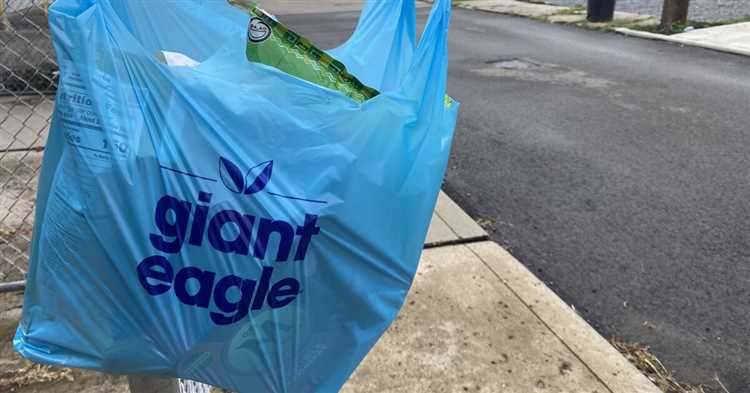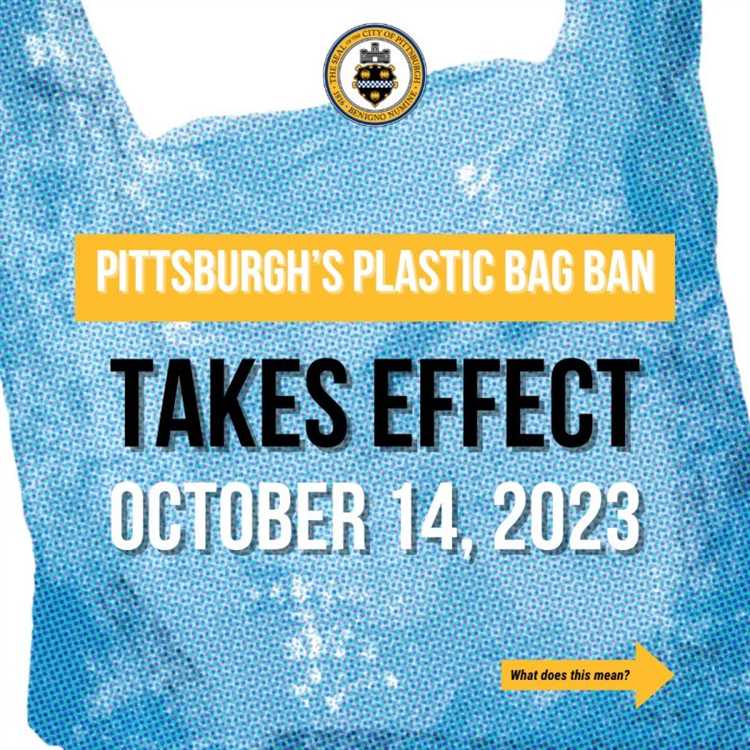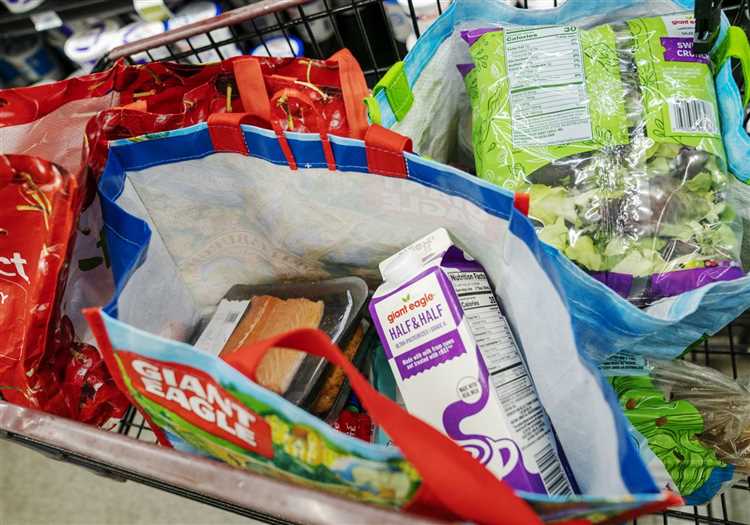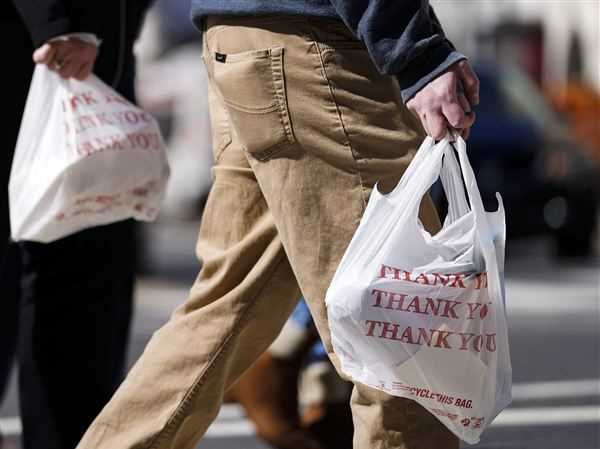
Pittsburgh, the vibrant and dynamic city in Pennsylvania, has recently taken a significant step towards becoming more environmentally friendly. The city council has passed a groundbreaking new legislation to ban plastic bags in an effort to reduce waste and protect the local ecosystem. This bold move has sparked a heated debate among residents, businesses, and environmental activists, with opinions ranging from enthusiastic support to passionate opposition.
But why is Pittsburgh taking such a drastic measure? Plastic bags have been a ubiquitous part of our daily lives for decades, but their impact on the environment cannot be ignored. These lightweight bags are difficult to recycle and often end up in landfills, where they can take hundreds of years to decompose. Not only do they contribute to the global plastic pollution crisis, but they also pose a serious threat to wildlife, particularly marine animals who mistake them for food.
So, what does the ban entail? Starting from [effective date], retailers in Pittsburgh will be prohibited from distributing single-use plastic bags to customers. This includes grocery stores, pharmacies, convenience stores, and even restaurants. Instead, shoppers are encouraged to bring their own reusable bags or purchase eco-friendly alternatives, such as paper or cloth bags. The ban aims to promote sustainable practices and encourage a shift towards a more environmentally conscious lifestyle.
- All You Need to Know About the Plastic Bag Ban in Pittsburgh
- Overview of the Plastic Bag Ban
- Implementation and Effective Date
- Impacted Businesses
- Benefits of the Plastic Bag Ban
- 1. Reduction in Plastic Waste
- 2. Protecting Wildlife
- 3. Cleaner Waterways
- 4. Promotion of Sustainable Habits
- Alternatives to Plastic Bags
- Reusable Cloth Bags
- Paper Bags
- Impact on Businesses
- 1. Customer Dissatisfaction and Inconvenience
- 2. Cost Savings
- How to Prepare for the Ban
- Educate Yourself
- Stock Up on Reusable Bags
- Consider Other Alternatives
- Create a Routine
- Spread the Word
- Future of the Plastic Bag Ban
- Question-answer:
- What is the purpose of the plastic bag ban in Pittsburgh?
- When does the plastic bag ban in Pittsburgh go into effect?
- Are there any exceptions to the plastic bag ban in Pittsburgh?
- What are the alternatives to single-use plastic bags in Pittsburgh?
- What are the potential benefits of the plastic bag ban in Pittsburgh?
- Why was a plastic bag ban implemented in Pittsburgh?
All You Need to Know About the Plastic Bag Ban in Pittsburgh
The city of Pittsburgh has implemented a ban on plastic bags in an effort to reduce waste and protect the environment. Here is everything you need to know about the ban.
What is the Plastic Bag Ban?
The plastic bag ban in Pittsburgh prohibits businesses from providing single-use plastic bags to customers at checkout. Instead, customers are encouraged to bring their own reusable bags or purchase paper bags for a small fee.
Why was the Ban Implemented?
The ban was implemented to address the growing concern over the negative impact of plastic bags on the environment. Plastic bags are not biodegradable and can take hundreds of years to break down. They often end up in landfills, waterways, and oceans, polluting the environment and harming wildlife.
Who does the Ban Apply to?
The ban applies to all businesses in Pittsburgh, including grocery stores, retail shops, and restaurants. It also applies to food trucks and farmers’ markets. All businesses are required to comply with the ban and find alternative packaging solutions.
Are there any Exceptions to the Ban?
While the ban applies to most businesses, there are a few exceptions. Small, independent businesses that meet certain criteria may be exempt from the ban. Additionally, plastic bags used for certain purposes, such as packaging raw meat or fish, are allowed.
What are the Alternatives to Plastic Bags?
With the plastic bag ban in place, customers are encouraged to use reusable bags made of cloth or other durable materials. Some businesses may also offer paper bags for a small fee. It is important to choose bags that are reusable and made from environmentally friendly materials.
What are the Penalties for Non-Compliance?
Businesses that fail to comply with the plastic bag ban may face fines and other penalties. The City of Pittsburgh will enforce the ban and conduct regular inspections to ensure compliance. Customers can also report businesses that do not comply with the ban.
By implementing a plastic bag ban, Pittsburgh aims to reduce plastic waste and promote a more sustainable future. It is important for businesses and customers alike to be aware of the ban and embrace alternative packaging solutions to protect the environment.
Overview of the Plastic Bag Ban
The Plastic Bag Ban in Pittsburgh is an ordinance that prohibits retailers from providing single-use plastic bags to customers. The ban aims to reduce plastic waste, protect the environment, and promote sustainable alternatives.
Implementation and Effective Date
The Plastic Bag Ban was passed by the Pittsburgh City Council in 2019 and went into effect on January 15, 2020. This means that starting from this date, retailers are no longer able to distribute single-use plastic bags to customers for free.
Impacted Businesses
The Plastic Bag Ban applies to all retailers in Pittsburgh, including grocery stores, convenience stores, pharmacies, and other businesses that provide items in plastic bags at the point of sale. Retailers are encouraged to transition to reusable bags or other sustainable alternatives.
Exemptions are granted to certain types of bags, including those used for loose bulk items, such as produce and grains, as well as bags used for prepared food or prescription medications.
There are no restrictions on the use of compostable or biodegradable bags, as long as they meet the necessary requirements. However, retailers are encouraged to promote reusable bags as the most sustainable option.
Benefits of the Plastic Bag Ban
The implementation of a plastic bag ban in Pittsburgh presents numerous benefits, not only for the environment but also for the community as a whole:
1. Reduction in Plastic Waste
The ban aims to significantly reduce the amount of plastic waste that ends up in landfills and pollutes our natural ecosystems. By encouraging the use of reusable bags, the ban will decrease the demand for single-use plastic bags, leading to a decrease in their production and subsequent waste.
2. Protecting Wildlife
Plastic bags pose a significant threat to wildlife, especially marine animals. Turtles, birds, and fish can mistake plastic bags for food, ingesting them and suffering from blockages and even death. The ban will help protect these vulnerable creatures by reducing the amount of plastic bags in the environment.
3. Cleaner Waterways
Plastic bags are frequently found littered in rivers, lakes, and oceans. They not only spoil the natural beauty of these water bodies but also pose risks to aquatic organisms. The ban will contribute to cleaner waterways, improving the aesthetics and overall health of our local ecosystems.
4. Promotion of Sustainable Habits

The plastic bag ban encourages individuals to adopt sustainable habits by actively choosing reusable bags. By making this conscious decision, people become more aware of their environmental impact and are more likely to adopt other eco-friendly practices in their daily lives.
Overall, the implementation of a plastic bag ban in Pittsburgh will have far-reaching positive effects on the environment, wildlife, and the community. It sets the stage for a more sustainable future and encourages individuals to take responsibility for their choices.
Alternatives to Plastic Bags

With the ban on plastic bags in Pittsburgh, it’s important to find alternative options for carrying your items. There are several eco-friendly alternatives that can help reduce plastic waste and protect the environment.
Reusable Cloth Bags
A popular alternative to plastic bags is reusable cloth bags. These bags are made from durable materials like canvas or cotton, and can be used multiple times. They come in various sizes and designs, and some stores even offer incentives for bringing them along for your shopping trips. Reusable cloth bags are not only environmentally friendly, but they are also more sturdy and can hold a larger amount of groceries or items.
Paper Bags
If you don’t have a reusable cloth bag with you, paper bags can be a good alternative. Many grocery stores offer paper bags as an option for packaging your purchases. While paper bags are biodegradable and recyclable, they have their own set of environmental concerns, such as deforestation and the energy required to produce them. It’s essential to reuse or recycle paper bags to minimize their environmental impact.
It’s important to note that both reusable cloth bags and paper bags have their own pros and cons. Reusable cloth bags require more resources to produce and may need to be washed regularly, whereas paper bags have a shorter lifespan and are not as durable. It’s crucial to find the balance between using reusable options and properly disposing of or recycling them.
Bringing Your Own Containers
In addition to bags, another alternative to plastic packaging is bringing your own containers. For loose produce, consider using mesh bags or fabric wraps instead of the plastic bags provided in grocery stores. Remember to bring your own containers for take-out food or leftovers. By doing so, you can eliminate the need for single-use plastic containers and reduce waste.
Conclusion
While the plastic bag ban in Pittsburgh may take some time to adjust to, there are plenty of alternatives available. Reusable cloth bags, paper bags, and bringing your own containers are just a few options that can help reduce plastic waste and protect the environment. By making conscious choices and adopting these alternatives, we can all contribute to a greener and more sustainable future.
Impact on Businesses
The plastic bag ban in Pittsburgh is expected to have both positive and negative impacts on local businesses. While some businesses may see an initial decrease in sales due to customer dissatisfaction or inconvenience, there are potential long-term benefits that can outweigh these concerns.
1. Customer Dissatisfaction and Inconvenience
One of the immediate concerns for businesses is the potential dissatisfaction and inconvenience the plastic bag ban may cause for customers. Some customers may not be prepared to bring reusable bags with them when they shop and may find the transition difficult. This could result in a temporary decrease in sales for businesses as customers adjust to the ban and explore alternatives.
2. Cost Savings
On the other hand, businesses can benefit from cost savings in the long run. Plastic bags are not free for retailers, and the cost of purchasing bags can add up over time. By eliminating the need for plastic bags, businesses can reduce their expenses and potentially improve their profit margins.
In addition, some customers may see the ban as an opportunity to support businesses that have made efforts to be more environmentally friendly. This could lead to an increase in customer loyalty and attract environmentally conscious consumers who actively seek out businesses that align with their values.
Overall, while the plastic bag ban may have some initial challenges for businesses, there is potential for long-term benefits, including cost savings and increased customer loyalty. Adapting to the ban and exploring alternative packaging options may be crucial for businesses to thrive in a more environmentally conscious market.
How to Prepare for the Ban

To ensure a smooth transition to the plastic bag ban in Pittsburgh, it’s important to be prepared. Here are some steps you can take:
Educate Yourself

Start by learning about the specifics of the ban. Find out what types of bags will be prohibited and if there are any exceptions. This will help you understand what alternative options are available.
Stock Up on Reusable Bags
Invest in a collection of reusable bags. These can be made of cloth, canvas, or other durable materials. Keep them handy in your car or near your front door so that you always remember to bring them with you when shopping.
Consider Other Alternatives
Reusable bags aren’t the only option. Look into alternatives such as paper bags or biodegradable bags. While they may have their own drawbacks, they can be a good option if you forget your reusable bags or need an extra bag in a pinch.
Create a Routine
Make using reusable bags a part of your shopping routine. Designate a specific area in your home to store them and get in the habit of grabbing them before you head out. This will help ensure you always have the necessary bags when you need them.
Spread the Word
Inform family, friends, and neighbors about the upcoming ban. Encourage them to join you in making the switch to reusable bags. The more people who are aware of the ban and prepared for it, the smoother the transition will be.
By following these steps, you can be well-prepared for the plastic bag ban in Pittsburgh and contribute to a more sustainable future.
Future of the Plastic Bag Ban
The ban on single-use plastic bags in Pittsburgh is just the beginning of a larger effort to reduce plastic waste and promote sustainable practices. As the city continues to prioritize environmental protection, it is likely that more regulations will be implemented in the future to further restrict the use of single-use plastics.
One possible direction for the future of the plastic bag ban is expanding it to include other types of single-use plastics, such as plastic straws and foam containers. These items are commonly found in landfills and can take hundreds of years to decompose. By including them in the ban, Pittsburgh can further reduce the amount of plastic waste produced by residents and businesses.
Another potential development is the implementation of a fee for reusable bags. While many retailers already offer reusable bags for purchase, a fee for these bags could incentivize customers to bring their own bags from home or opt for alternative packaging options. This would further encourage a shift away from single-use plastics and support the use of more sustainable materials.
Additionally, the city may also consider implementing educational campaigns and programs to raise awareness about the environmental impact of plastics and promote more sustainable alternatives. These initiatives could include workshops, advertisements, and community events focused on reducing plastic waste and showcasing eco-friendly alternatives.
Ultimately, the future of the plastic bag ban in Pittsburgh will be shaped by the collective efforts of local government, businesses, and residents. By working together to reduce plastic waste and adopt sustainable practices, the city can pave the way towards a greener and more environmentally conscious future.
Question-answer:
What is the purpose of the plastic bag ban in Pittsburgh?
The purpose of the plastic bag ban in Pittsburgh is to reduce plastic waste and promote environmental sustainability. It aims to encourage people to use reusable bags instead of single-use plastic bags.
When does the plastic bag ban in Pittsburgh go into effect?
The plastic bag ban in Pittsburgh went into effect on January 15, 2021.
Are there any exceptions to the plastic bag ban in Pittsburgh?
Yes, there are several exceptions to the plastic bag ban in Pittsburgh. Some examples include bags used for prescription medications, dry cleaning, and newspapers. Additionally, small businesses with less than 10 employees are exempt from the ban until January 1, 2022.
What are the alternatives to single-use plastic bags in Pittsburgh?
There are several alternatives to single-use plastic bags in Pittsburgh. People can use reusable cloth bags, paper bags, or biodegradable bags made from materials like cornstarch or potato starch.
What are the potential benefits of the plastic bag ban in Pittsburgh?
The plastic bag ban in Pittsburgh can have several potential benefits. It can help reduce plastic pollution, protect wildlife, conserve resources, and promote a shift towards more sustainable and eco-friendly practices.
Why was a plastic bag ban implemented in Pittsburgh?
The plastic bag ban was implemented in Pittsburgh to reduce waste and improve environmental sustainability. Plastic bags are not biodegradable and contribute significantly to pollution and littering. By banning plastic bags, the city aims to encourage the use of reusable bags and alternative materials.